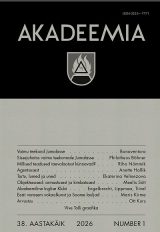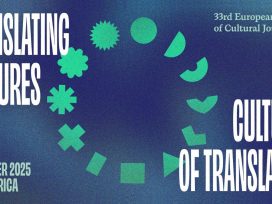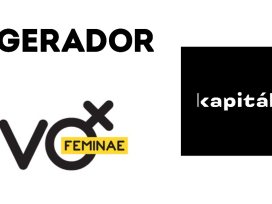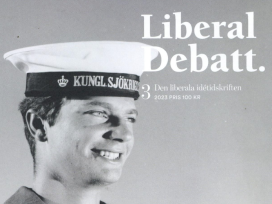After four years on high-level alert, defence against invasion becomes a gruelling routine. But could the normalization of war in Ukraine be positive for long-term planning, the public good and the social contract? Literature and critical writing provide valuable perspectives.
Articles
Phenomena of fear
Osteuropa 10/2025
Lev Gudkov on the roots of fear in Russian society; translation as survival strategy in Soviet Kyiv; why the EU needs to get real on Belarus; what the Armenia–Iran relationship means for the South Caucasus.
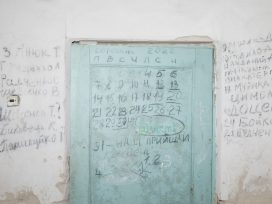
Russia’s full-scale invasion of Ukraine is entering its fifth year. With peace negotiations at a standstill, traumatized communities face a tough question: What does it mean to memorialize a war when its end is nowhere in sight? War crime survivors from Yahidne are actively engaging in how their mass confinement is remembered.

Online influencers are using religion to give misogyny a virtuous veneer. How can society support boys and young men, labelled as incels and bombarded with digital hate, seek answers to questions on life and trauma without resorting to male stereotypes?
Recommended topics

The anti-EU sentiment emerging from Central Europe today suggests that little remains of the ‘arch-Europeanism’ Milan Kundera once ascribed to the region. But was there something inherent to Kundera’s concept of Central Europe that explains the logic of contemporary Polish, Hungarian, Czech and Slovak nationalism?

We live in a world where the borders between one language and another, between reality and non-reality, between the human and the non-human, are being denied. As a reminder of difference and an openness to encounter, translation can be an antidote to the nihilism of borderlessness. [Slovenian version added]
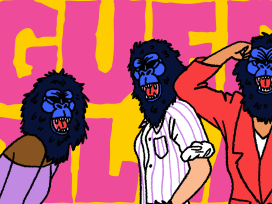
AI-generated non-consensual porn is devastating the lives of girls and women. Online images sexualized at the click of a button reveal how unrealistic standard advice for women to exercise caution is. Regulation of AI products that enable sexual violence is a first step. But an ideological and intellectual shift on women’s freedom is needed.

“Come Together” is founded on the principles of partnership and peer-to-peer learning among individuals within community media organizations situated in six different countries. Instead of generating entirely new knowledge, the initiative aims to unearth and leverage the existing wisdom residing within these organizations to foster innovative approaches.
Eurozine review
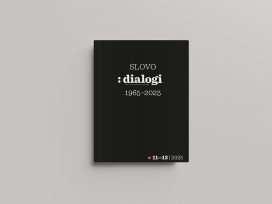
Farewell to Dialogi
Dialogi 11–12/2025
The journal Dialogi closed at the end of last year. Its editors reflect on the publication’s sixty-year history and why the challenges faced by a Slovenian magazine of culture and society proved insurmountable.
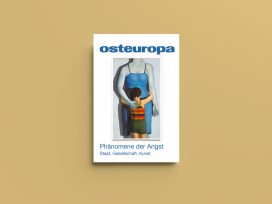
Phenomena of fear
Osteuropa 10/2025
Lev Gudkov on the roots of fear in Russian society; translation as survival strategy in Soviet Kyiv; why the EU needs to get real on Belarus; what the Armenia–Iran relationship means for the South Caucasus.

Hic sunt leones
Scena9 2025
Looking at what we have learned not to see: communist infrastructure; museums and mnemonic warriors; folklore and the spirit of community.
Focal points
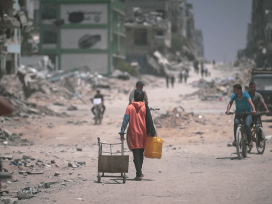
An ongoing series in Eurozine discussing questions raised by the 7 October attacks and their devastating aftermath. The series offers a sample of articles published in the wider Eurozine network and represent diverse perspectives, including above all those of Palestinians.

Post-revolutionary Ukrainian society displays a unique mix of hope, enthusiasm, social creativity, collective trauma of war, radicalism and disillusionment. With the Maidan becoming history, the focal point ‘Ukraine in European Dialogue’ explores the new challenges facing the young democracy, its place in Europe, and the lessons it might offer for the future of the European project.

Inspired by a lecture that Clifford Geertz delivered in 1995 at the Institute for Human Sciences in Vienna, this focal point engages with ‘deep diversity’, ‘a sense of dispersion, of particularity, of complexity and of uncenteredness’ rather than unified world order. It follows the launch of a research programme of the same name at the institute in January 2023.
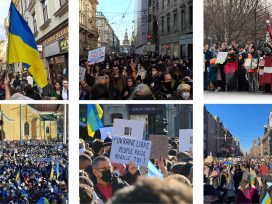
Russia’s invasion of Ukraine poses the greatest challenge to Europe’s self-understanding since World War II. Contributors to the new series ‘Lessons of war’ take on this challenge and reflect on the possibility of a ‘Rebirth of Europe’.



